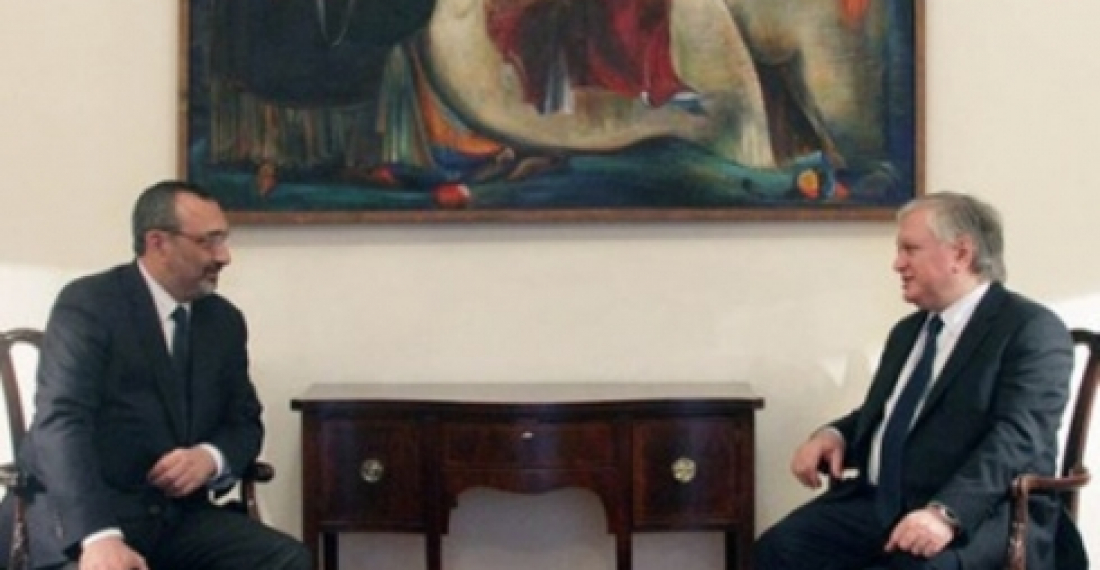Armenian Foreign Minister Edward Nalbandian on Thursday (4 June) received at his office in Yerevan the Foreign Minister of the self-declared Nagorno-Karabakh Republic, Karen Mirzoyan.
A short statement published on the website of the Armenian Foreign Ministry stated that during the meeting Nalbandian and Mirzoyan discussed developments in the process of peaceful settlement of the Nagorno-Karabakh issue and "touched upon the formulations related to the settlement of NK issue embodied in the Declaration of Riga Summit of EU and Eastern Partnership states".
According to the same source "Edward Nalbandian and Karen Mirzoyan exchanged views on the OSCE Chairman in Office's visit to the region as well as on the meetings between the leadership of Armenia and Artsakh".
Commonspace.eu political editor said in a comment that whilst such meetings are not unusual they have become more frequent and structured in recent times as Armenian diplomacy works to strengthen its position in the international arena on the Nagorno-Karabakh issue. The self-declared Nagorno-Karabakh Republic (NKR) is not recognised by any state but can depend on strong support from Armenian diaspora communities all over the world. Whilst its claim to be fully represented in the negotiations on the conflict in the framework of the OSCE Minsk process is dismissed outright by some, and considered premature by others, the fact that it is in de facto control of the territory of Nagorno-Karabakh greatly strengthens its bargaining position.
Azerbaijan is very sensitive to any contacts between the international community and the de facto NKR authorities, and has been by and large successful in containing official international engagement with the entity. However it has no way of stopping personalities from the world of politics, sports and culture from visiting Karabakh and dealing with the NKR authorities. The position of the OSCE is different, since as the entity entrusted with facilitating a resolution of the conflict, it is expected to engage with all the stakeholders. The meeting on Wednesday in Yerevan between the OSCE Chairman-in-Office and the leadership of NKR was in this context.
Many however consider that there needs to be wider international engagement with the Armenian population in Nagorno-Karabakh since isolation does not contribute to the resolution of the conflict, and is allowing for an entrenchment of a hardline siege mentality. Whilst many blame the Azerbaijani side for a rigid position on this issue, including by declaring as persona non grata any person who visits Karabakh without informing the Azerbaijani authorities beforehand, some also say that the de facto authorities often raise unnecessary procedural demands.
The Karabakh conflict can never be resolved without the support of the stakeholders that are most directly involved - the people of Nagorno-Karabakh, be they Armenian or Azerbaijani. This requires flexibility on all sides for dialogue to take place in as free and open manner as possible.
source: commonspace.eu
photo: Armenian Foreign Minister Edward Nalbandian meeting with the Foreign Minister of the self-declared Nagorno-Karabakh Republic, Karen Mirzoyan, on 4 June 2015 in Yerevan. (Picture courtesy of the Press Service the Ministry of Foreign Affairs of Armenia).







